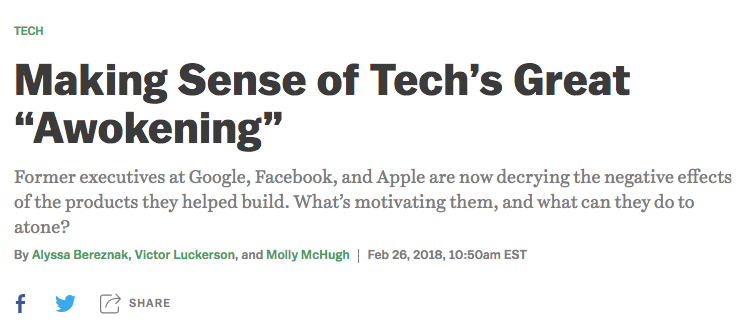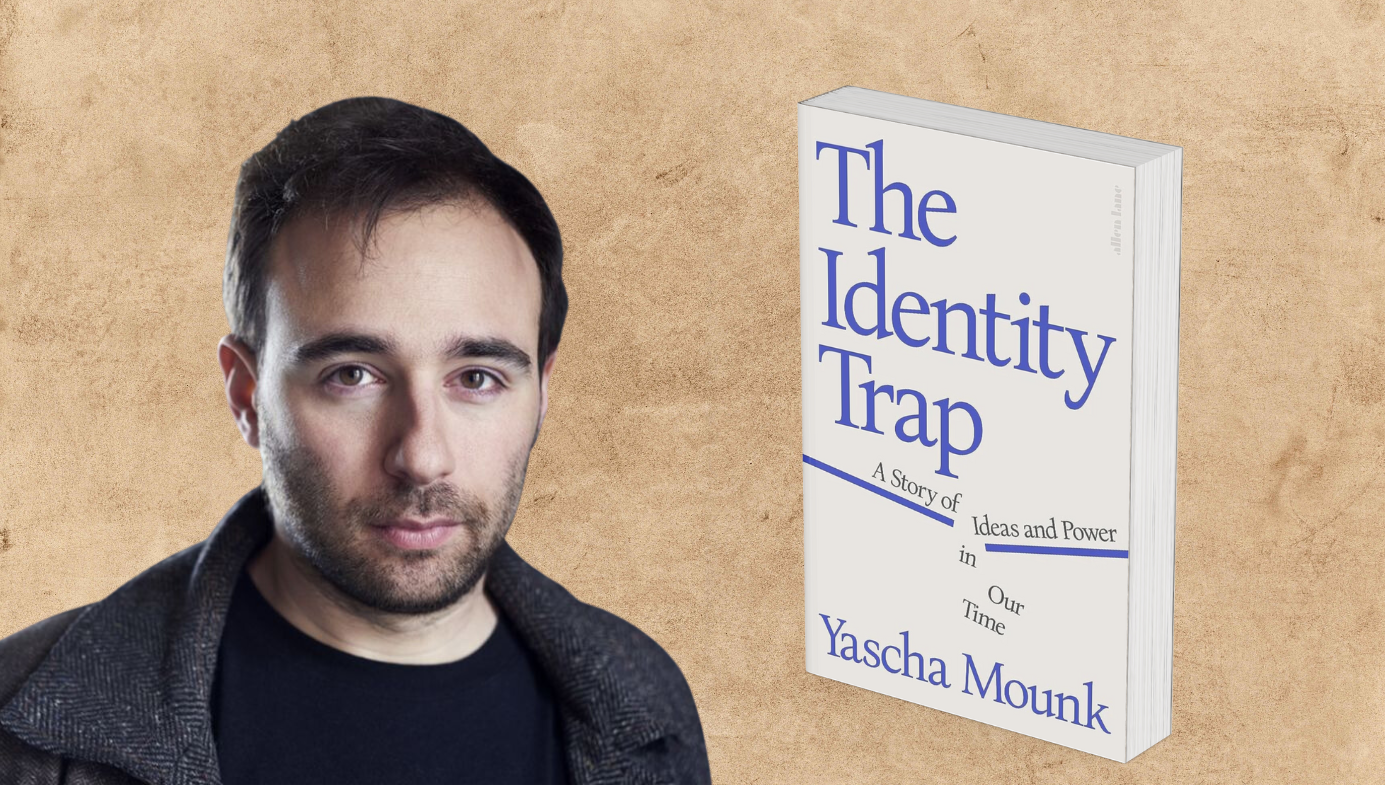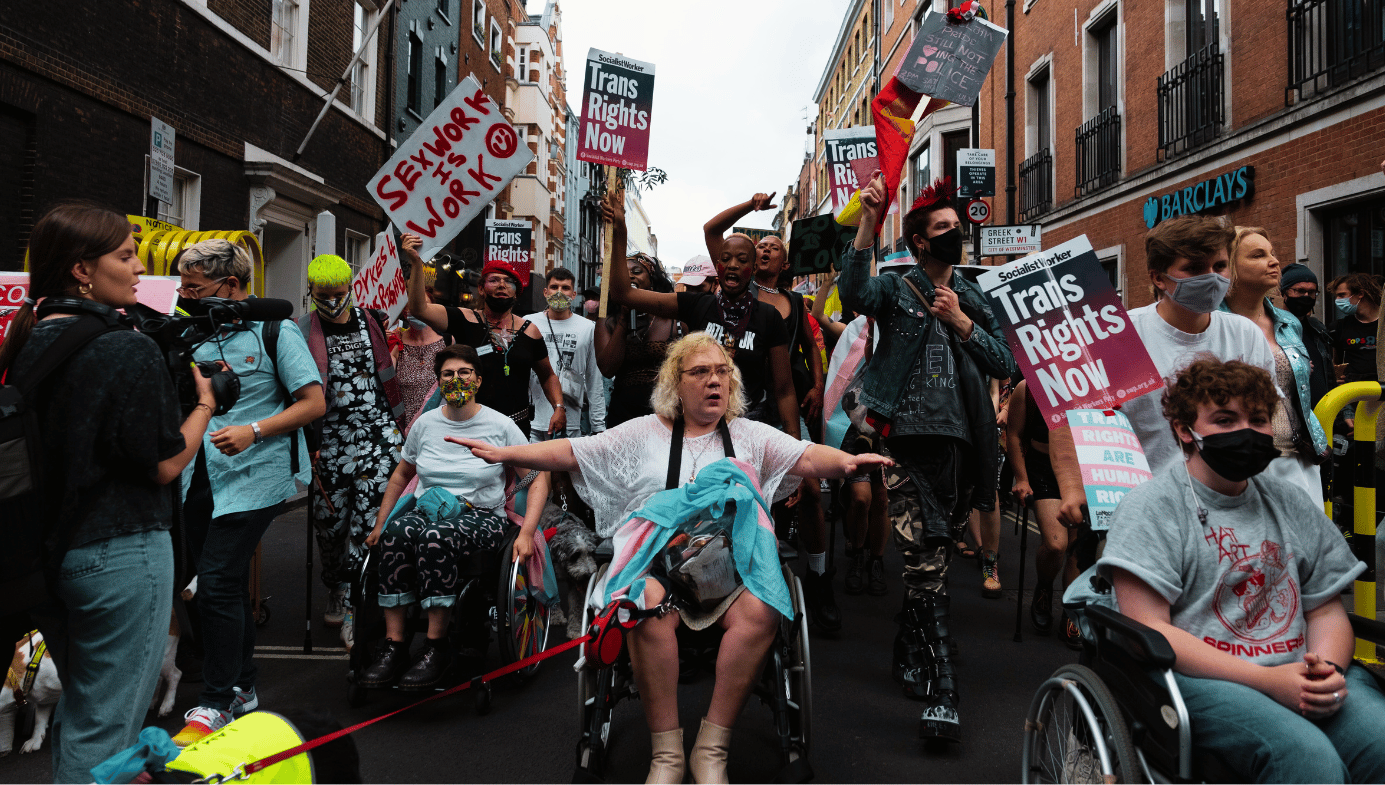Education
The Preachers of the Great Awokening
Sinners are threatened not by an angry god, but by a righteous mob.

“Yea, on the contrary, Justice calls aloud for an infinite Punishment of their Sins.”
Jonathan Edwards
From the sun-blanched beaches of California to the snow-covered cities of New England, a religious fervor is sweeping the United States. PhD-toting preachers spread the faith with righteous zeal, denouncing those who violate its sacred principles. Sinners are threatened not by an angry god, but by a righteous mob. The impenitent among them are condemned to be outcasts, while the contrite, if they properly mortify themselves and pledge everlasting fealty to the faith, can secure enough lost status to rejoin society, perhaps forever marked by a scarlet epithet. Racist. Sexist. Ableist. This is the religion of Wokeness, and this is the era of the Great Awokening.

In the following article, we will explore this quasi-religion, Wokeness, as a status system that functions predominantly to distinguish white elites from the white masses (whom we will call hoi polloi). It does this by offering a rich signalling vocabulary for traits and possessions such as education, intelligence, openness, leisure, wealth, and cosmopolitanism, all of which educated elites value (for a similar analysis, see Rehain Salam’s August essay in the Atlantic, discussed by David French in the National Review article linked above). From this perspective, the preachers of the Great Awokening—those who most ardently and eloquently articulate the principles of Wokeness—obtain status because they (a) signal the possession of desired traits and (b) promulgate a powerful narrative that legitimizes the status disparity between white elites and hoi polloi. The elites, according to these preachers, are morally righteous and therefore deserve status, whereas hoi polloi are morally backward and deserve obloquy and derision.
It’s important to note before we begin that this perspective does not contend that all the actors in this status system are cynical charlatans. In fact, it insists that many legitimately believe their assertions about pervasive racism, sexism, transphobia, et cetera, and feel compelled to preach their doctrine so as to make society more just. Sincere belief and status motives often conspire. For example, the famous preachers of the Great Awakening (from whom we derived our title) almost certainly believed the urgency of their message and the elaborate metaphysics of their faith, but also obtained status from their books and sermons.
Wokeness
Before analyzing Wokeness as a status system, we must understand it as a quasi-religious doctrine. Unlike scientific theories or other empirical claims, the basic tenets of Wokeness are held with sacred fervor. Those who challenge them are not debated; rather, their motives are denounced, and they are cast out of polite society like heretics. To take just one example, when someone objects to the Woke principle that “diversity is a strength,” committed believers rarely greet the objection as an opportunity for argument. Instead, they attack the apostate for his sacrilege, and accuse him of unspeakable moral treachery (see table below for other examples).
The chief dogmas of Wokeness are that:
- All demographic groups are roughly biologically the same (which we have termed cosmic egalitarianism elsewhere).
- Bigotry is pervasive.
- Almost all disparities among demographic groups are caused by bigotry.
- If we all work really hard, we can create a more just, multicultural society.
- Diversity is almost always a good thing.
These dogmas have far-reaching consequences. For example, dogma 2 compels Woke believers to view almost every human action as tainted, and possibly determined, by some kind of racial or sexual bias. When Serena Williams, for example, severely scolded an umpire and was docked a game, Woke pundits and preachers rose as one to announce that her punishment proved that sexism and racism still plague tennis. That her punishment might be the impartial response of the tennis umpire was hardly considered; and those who did consider it were met with derision and invective.
| WOKE PIETIES | MORALIZATION |
| All groups are basically the same. | “If you study sex differences, then you are sexist.” |
| Racism, sexism, and other bigotries are ubiquitous. | “If you deny the prevalence of bigotry, then you are a bigot.” |
| Disparities in outcomes among groups are almost always caused by bigotry. | “If you search for another cause of social disparities, then you are part of the problem.” |
| Diversity of race, sex, sexuality is always and everywhere a good thing. | “If you think diversity can be bad, it’s because you are a bigot.” |
More broadly, Woke dogmas lead to a sacred narrative about the nobility of perceived victims’ groups (e.g., blacks, women, Muslims, gays, transexuals, et cetera). Members of these groups are to be considered the innocent victims of an oppressive and iniquitous patriarchy. Whites, on the other hand, are born burdened with the original sin of privilege, and are therefore presumptively complicit in the system unless they declare fidelity to Wokeness. This creates a Manichean moral doctrine that purports to reverse the current power hierarchy. Victims’ groups are revered, and the powerful are despised. However, as we will argue, this hierarchy is not so simple because it actually elevates a healthy proportion of the powerful, namely the white educated elites who profess unquestioning devotion to Wokeness. So, in the end, it is not really a status reversal so much as a way to distinguish one group of whites from the rest.

Wokeness As a Status System
Because it allows a person priority access to crucial and coveted resources such as money and mates, the desire for status is probably a fundamental human motivation. And because that desire is primitive and powerful, many social practices and activities function at least partially to delineate status relationships. These can be analyzed as status systems and operate in predictable ways because, whatever its diverse manifestations, status has some invariant features. Most importantly, it is inexpansible. That is to say, its supply does not grow. Unlike the economic pie, the status pie remains roughly the same across time. Therefore, players in the status game inevitably inhabit a zero-sum world. If one person’s status goes up, then another’s must go down, which explains why people are exquisitely sensitive not only to gains in their own status, but also to gains in other people’s status. Another’s triumph inevitably rearranges the distribution of a finite and precious resource.
Among other things, Wokeness appears to operate as just such a status system. This doesn’t mean that its only function is to adjudicate status competitions; but it does mean that one of its crucial functions is to do so. And it does this primarily by offering a signaling vocabulary which can distinguish educated elites from hoi polloi. The elites who thus benefit offer status to those who defend and legitimize the Woke narrative (the preachers); and they strip status from those who dissent.
This perspective illuminates many otherwise inexplicable aspects of Woke culture, such as:
- Why do Woke norms change quickly and why are they so complicated (thus alienating many potential allies)?
- Why do Woke preachers often denigrate those who fail Woke purity tests (thus alienating many potential allies)?
- Why do people in Woke culture expend so much effort sending signals to each other and so little quietly working to improve people’s lives?
- Why don’t more Woke preachers strive to make as many friends and partners among hoi polloi as possible, since such partnerships would help them to achieve their stated goals?
To begin, we’ll examine the nature of the Woke signaling vocabulary. Signals that are effective must be reliably connected to what they signal. Sometimes such reliability is achieved because the communicator and receiver share interests. If Mary tells her teammate that she is going to cut left on the next play, then her teammate has little reason to doubt the signal (i.e., the sentence) because they share interests (namely, they both want to win the game). But often reasonable reliability can only be achieved by using costly signals, signals that honest communicators can afford but that dishonest communicators cannot.
It is trivially easy (not costly) to assert that one is educated or sophisticated or committed to a doctrine; therefore, very few people pay attention to such pronouncements (except as they might indicate narcissism). On the other hand, it is not easy (is costly) to speak a jargon that is taught only in universities and that requires many hours of dedication to master. Therefore, people pay attention and often defer to those who command a rich, complicated jargon.
Wokeness provides this kind of sophisticated argot for signalers. Those who preach its gospel often use bizarre concepts imported from postmodern theorists, infamous for their impenetrable prose. Terms such as “hegemonic,” “intersectional,” “phallocentric,” and “queerphobe” are regularly deployed, intimidating the uninitiated and impressing those who wish, in the future, to signal their erudition to fawning fans. Even Woke language for popular consumption is complicated by a quickly changing list of taboo epithets. Is it wrong to say homosexual relationship? Is it all right to say African-American? Will I be berated if I say Mexican-American? These changing prohibitions function well to distinguish elites from hoi polloibecause they require devotion, erudition, and the right social acquaintances to understand.
Using arcane language and adhering to constantly changing norms about acceptable epithets are not particularly effective for attracting people from the broader population to one’s cause. In fact, they almost certainly alienate many average, and otherwise sympathetic, Americans, who understandably disdain indecipherable prose and elite superciliousness. Therefore, this signaling function of the Woke faith is actually antithetical to the stated goals of Wokeness (i.e., creating a more just social world—which requires a broad coalition of different classes of people).
Also antithetical to the stated goals of Wokeness is the tendency of its most popular preachers to castigate sinners instead of calmly attempting to persuade them of the justness of the Woke doctrine. Antithetical, but perfectly comprehensible from a signaling perspective. Those who are Woke don’t really want to inhabit an entirely Woke world without the bigoted masses; instead, they want to occupy a world of good and evil, of the just and the wicked, of the high status and the low status, of the elite and hoi polloi. The Woke faithful almost certainly do believe that the world is unjust, even wicked, and they almost certainly do sincerely want to ameliorate the suffering of its victims. However, they also want to signal their membership to an elite and morally righteous club, and therefore they need an out-group, a foil, a morally wicked other for contrast. And, they can’t let just any kind-hearted person into their club, because then it would lose its exclusivity. So they must develop a strenuous vetting system, one that is vigilant and suspicious and quick to detect sin.
Furthermore, accusing others of violating the faith of the Woke can serve as a signal of one’s commitment to righteousness; and, perhaps perversely, the more ridiculous the accusation, the better the signal. How, after all, can somebody who accuses the entire tennis world of racism and sexism, be racist or sexist? This can lead to a kind of concept creep, in which those vying for status among the Woke compete to call out vanishingly trivial offenses and imagined slights as intolerable manifestations of racism, sexism, and patriarchal oppression. Meanwhile, many otherwise sane people, with no interest in the excesses of The Great Awokening, nevertheless feel compelled to agree with such fantastical claims for fear that otherwise they too will be accused of bigotry.
This may also explain the utility of outlandish beliefs. Anybody can believe something that is true. It takes no effort, no talent, and no real commitment. But to believe something that is transparently ridiculous, such as that men and women are biologically the same, and to assert such a belief with force and conviction requires singular devotion to a coalition and to its sacred narrative. Therefore, those competing for status in the world of Wokeness may strenuously profess a belief in risible propositions (e.g., all demographic groups are the same) to signal commitment to the cause. Furthermore, attempted correctives—such as offering heaps of contradictory data—may be counterproductive, simply serving to highlight the dedication of the besieged believer.
Of course, the signaling perspective also explains why so many disciples of Wokeness expend effort writing inscrutable articles about the patriarchy or denouncing sinners on Twitter rather than going out into the world to help the victims’ groups they claim to admire: their primary motivation, whatever their conscious beliefs, is to procure status. There are, of course, many courageous and devoted people who do work quietly to make the world better for minority groups; and those people deserve our admiration. But, many of the most conspicuous activists spend more time promising punishment to heretics on Twitter than they do helping their local communities. These Twitter displays are often called virtue signals, but they are probably better understood as commitment signals, because they don’t really signal a person’s underlying moral character, but they do signal his or her allegiance to the faith of Wokeness.
The Preachers of the Great Awokening
Atop the hierarchy of this status system sit the preachers of the Great Awokening, the media mavens and academics who write, defend, and theorize Wokeness, who guard its doctrines from dissent, who praise the faithful, and who call for the righteous punishment of heretics and sinners. They have the power of salvation and of damnation. Their approval can make a career, and their opprobrium can ruin one. Some are men; some are women. Most are white. And most have distinguished themselves from their other, their antipode, the men and women of hoi polloi. But, perhaps more importantly, they have provided a narrative that justifies such a distinction in the first place.
Status disparities cause resentment. And they often also cause guilt. Those on the bottom of the hierarchy become bitter, disdaining those on the top. And this resentment is a constant source of rancor and instability. Those on the top, of course, are generally happier; however, they often experience discord as well, especially perhaps if they are liberal: Why do I deserve this blessed life? Am I really better than those below me? Both problems—the bitterness of those on the bottom and the guilt of those on the top—can be ameliorated by a powerful legitimizing narrative, a narrative that explains why those on the top deserve their status while those on the bottom deserve their rather less charmed lives and, in fact, should be pleased simply to defer to their superiors. Those who provide such a narrative offer a valuable service; therefore, they are recompensed with approval and applause.
This is precisely what the preachers of the Great Awokening provide. According to their teachings, those on the top of the hierarchy, the educated, the cosmopolitan, the elite, are there not because they are smarter or more ambitious than hoi polloi (traits about which these elites claim to be skeptical), but rather because they are more righteous. The elite deserve status because they are Woke; they are altruistic, noble, and selfless defenders of the downtrodden. Hoi polloi, on the other hand, are morally backward: they are confused and unenlightened defenders of a racist, sexist, and bigoted America. They fail to understand intersectionality; they deny their own white privilege; they can’t or won’t see the bigotry that pervades society. They, then, are sinners. And why shouldn’t sinners be punished, especially if they are without contrition? And this is why Wokeness has become a quasi-religion; it has to divide the world into the righteous and the fallen, the deserving and undeserving.
The great news, the gospel, is that Wokeness is a meritocracy. At least, that is the message these preachers deliver. Yes, sinners are punished, and the unenlightened suffer derision and ridicule, but they can obtain status by achieving moral purity, by repenting their sins, castigating their former beliefs, and renouncing their own interests. And then they too, like today’s moral elite, will enjoy the voluptuous fruits of the good life. What could be more just?

Conclusion
Before concluding, it is important to re-emphasize that many of the people in the Woke status system sincerely believe in social justice. And many of their moral concerns are entirely legitimate. The preceding analysis, although it may deflate some of the pretensions of the most extreme preachers of the Woke faith, does nothing to impugn its accuracy or urgency. We are skeptical of many of the claims of Woke culture, but our skepticism is irrelevant to our analysis. Even if its claims were entirely true, one could still fruitfully approach it from a status systems’ perspective.
We have argued that this perspective offers insights into the behavior of those who inhabit the culture and spread the norms of Wokeness. Chiefly, it contends that (a) many Whites use the vocabulary of social justice to signal their erudition, cosmopolitanism, and commitment to the cause so as to distinguish themselves from hoi polloi. And that (b) the preachers of the Great Awokening serve the crucial function of legitimizing the resulting status disparity. Their teachings assuage the guilt of the elite and blunt the bitterness of hoi polloi. And, therefore, those preachers are recompensed with status.
The danger is that the status desires of these preachers will eclipse their moral concerns. (Some, of course, would claim that this has already happened.) And then the preachers will become moral peacocks, showcasing eloquent and fantastical sermons to a dwindling but increasingly fanatical base. And this will ultimately lead to a situation in which social justice activists pay more attention to the pronouns on a box of cereal than to the sufferings of the less fortunate.






